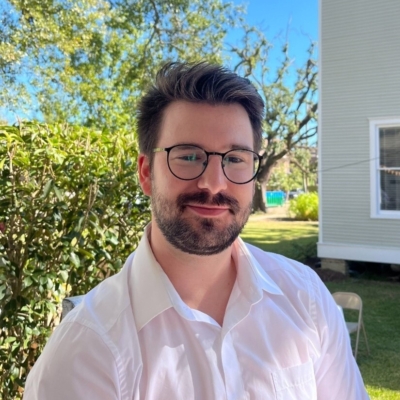The Bachelor of Science in Medical Laboratory Science (MLS) program prepares graduates to analyze clinical specimens through the use of specialized skills and sophisticated instrumentation.
Information from the analysis of specimens provides data critical for patient diagnosis, treatment, prognosis or disease prevention. Medical laboratory scientists work in hospitals, forensics, public health, industrial/research laboratories, physician offices and blood banks.
The purpose of the Medical Laboratory Science program is to provide the community with cognizant and adept scientists capable of competing and excelling in today’s progressive job market. Graduates of this program will possess the knowledge and skills necessary to become successful in the MLS profession and will be eligible to take the national certification examination offered by the American Society for Clinical Pathologists (ASCP).
View the Admission Requirements for undergraduate programs.
Calculate what it would cost to attend FranU.
Learn more about financial aid and scholarship opportunities available to students.
Request more information about a program, or submit general questions about FranU and the admission process.
This scholarship is designed to support outstanding MLS students at FranU who are entering the clinical training portion of their education.

There are two ways in which students can qualify for guaranteed admission into the Medical Laboratory Science Program:
**Students transferring in less than 30 hours of coursework may be considered for guaranteed admission. Students falling in this category should call the Admission Office.
The mission of the Medical Laboratory Science program of �������Ƶ is to educate and form highly skilled servant leaders who model professional ethics and exhibit critical thinking skills in order to serve patients by producing quality laboratory test results.
The goals of the Medical Laboratory Science degree program are to:
Upon completion of the Medical Laboratory Science program, students will be able to:

When I was searching for what I want to do in life, I came across MLS and started looking into schools and asking hospitals what programs are good and what they are looking for in employees. The answer was always that FranU has a much better quality of student than other schools in the area. At the time I applied the MLS program, under direction of Dr. Fox, it had a 100% pass rate when taking the ASCP exam. This all combined with a generally easy to navigate commute. FranU just seemed like the right fit for me for me to pursue my academic goals. Together with a small class size and instructors that are personable, easy to talk to, and are truly passionate about your success; I found a great school that helped me earn the life I live today. Being at FranU taught me independence and critical thinking skills that are absolutely crucial in navigating clinical operations in a hospital laboratory. For me, what was the turning point in my decision for schools was FranU's community focused healthcare education.
- Matthew Babin, MLS (ASCP)CM
Lab Lead Scientist at North Oaks Health System
Our Medical Laboratory Science faculty members are highly-skilled professionals with extensive content expertise and a passion to teach students how to apply practical, clinical knowledge to their future careers.
If you are a problem solver with a passion for the science laboratory and attention to detail and you desire to work in a carreer which can help people, MLS may be the right profession for you.
In most cases, yes. Please contact Deborah Fox (Deborah.fox@franu.edu, 225-768-1727) for a complete transcript review. Most science-based Bachelor's degrees include the appropriate credits to transfer directly into the MLS program and begin the 18-month curriculum.
The MLS program accepts a new cohort of students to begin in the summer semester each year.
Yes, the MLS curriculum and experience within the MLS field provides an exceptional foundation for advanced career opportunities. Several graduates of the MLS program have chosen to continue their education in graduate school and all have been very successful in advanced healthcare coursework.
Yes, contact Deborah Fox (Deborah.fox@franu.edu, 225-768-1727) to find out which MLS courses are available to non-MLS students who have taken the appropriate pre-requisite coursework.
| Document Title | Type | File Size | |
|---|---|---|---|
| Document Title: MLS Handbook 2025 2026 | Type: pdf | File Size: 690.872 KB | |
| Document Title: NAACLS Defined Program Outcomes 2025 | Type: pdf | File Size: 155.369 KB |
By enrolling in the Medical Laboratory Science degree program at FranU, you’ll be supported from classroom to career and gain hands-on experience in your field through both clinical and laboratory learning experiences.
Learn more about the MLS program by Requesting Information. Ready to take the next step? Begin your application now.
We’re proud to be named one of Baton Rouge’s top choices for higher education. This honor reflects our ongoing commitment to academic excellence, student success and community impact.

In addition to the Bachelor of Science in Medical Laboratory Science, FranU also offers a certificate in Clinical Microbiology for Medical Laboratory Science as an option for post-Bachelor degree applicants who have an interest specific to clinical microbiology and meet designated requirements.
For information about our SACSCOC accreditation, please visit our Institutional Accreditation page.
The Medical Laboratory Science program is accredited by the National Accrediting Agency for Medical Laboratory Science (NAACLS, 5600 N. River Road, Suite 720, Rosemont, IL 60018 or call (773)-714-8880).